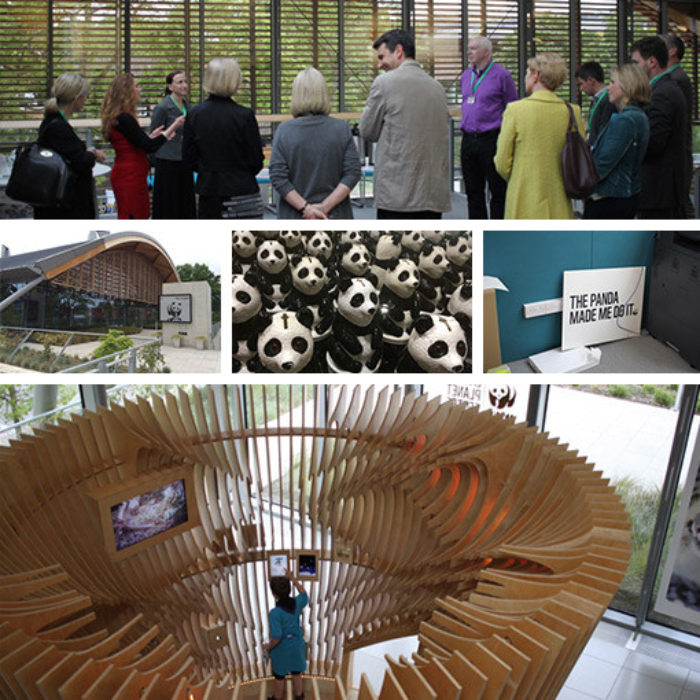How WWF is using behavioural science to help global citizens #SaveNaturePlease
How WWF is using behavioural science to help global citizens #SaveNaturePlease
Nature sustains all life.
We depend on nature for our survival. Yet we have stumbled blindly into a dystopian world, where our waterways are polluted, our soil is degraded, and our air is choked with smoke from burning forests as land is cleared for agricultural commodities.
Our voracious appetite for ‘more’ has depleted natural resources faster than nature can replenish them and decimated natural habitats leading to an average decline in global wildlife populations of 68% since 1970.
This culture of overconsumption is accelerating the climate and nature crises, creating the perfect storm of conditions for zoonotic diseases such as COVID-19.
The context is scary stuff.
Our best hope for a way out is that we all do our bit to change the behaviours that drive nature and climate breakdown.
We all have an opportunity and a choice to act in ways that will help drive a swift transition to a carbon-neutral and nature-positive future.
To make it easy to act, WWF is using its unique global reach.
The new ‘SAVE NATURE PLEASE’ behaviour change framework offers freely accessible, practical guidance enabling change-makers everywhere to apply behavioural insight to influence the decisions of citizens, business leaders, policymakers and partners.
The appeal to “SAVE NATURE PLEASE” is designed to attract attention and help us remember the 3-step process of developing, delivering and measuring behavioural interventions:
Step 1: SAVE focuses on Scoping the problem, Audiences and behaviours, Visioning the preferred future and Engaging to gather authentic human insight and evidence as the bedrock of the strategy.
Step 2: NATURE sets out principles to consider when delivering interventions, including how to make behaviours Normal, Attractive, Timely, Uncover what’s hidden, Rewarding and Easy.
Step 3: PLEASE highlights the need to Pilot activities to Learn and Evaluate what’s working and what’s not, before Adapting and Scaling through collaboration to Empower others.
Links to practical tools ensure the framework is easy to apply and examples from WWF and beyond show the impact of applying behavioural science in practice.
- Earth Hour exemplifies a timely moment of action that unites global citizens behind a common cause in more than 180 countries, driving advocacy and policy change.
- Your Plastic Diet personalises plastic pollution by framing it as a human health crisis, driving the fastest movement in WWF history, with nearly two million people petitioning governments to reach a legally binding global agreement to end plastic pollution.
- Scorecards for palm oil buyers, soy buyers and sustainable retailers assess the performance of supply chains, manufacturers and retailers, driving transparency to uncover what is hidden.
- Tools such as colour coded sustainable seafood guides in South Africa and the We Act for Good coaching app in France make it easy for people to change habits to reduce their climate impact.
- In Asia, the Travel Ivory Free campaign collaborates with popular actor Zhu Yilong to model social norms, targeting Chinese overseas travellers through timely placement of materials in airports and hotels during Lunar New Year, generating 3.4 million pledges to travel ivory-free.
It’s been an honour and privilege to work with the WWF International team to create the Save Nature Please framework. I’m grateful to behavioural scientists everywhere for sharing knowledge so freely, particularly TRAFFIC1 , Rare2 and BIT3 .
You can download the SAVE NATURE PLEASE framework here.
I very much hope this adds to the evidence base and inspires you to do whatever you can to speed up the change we need.
I can’t resist ending on a good quote (authority bias)
“We are all here on this planet as tourists. Whether we live just a few years or a whole century, it would be truly regrettable if we were to spend time aggravating the problems that afflict other people, animals and the environment…Ultimately the decision to save the environment must come from the human heart. The key is a call for a genuine sense of responsibility based on love, compassion and clear awareness” (Dalai Lama)
By Belinda Miller
November 2020



